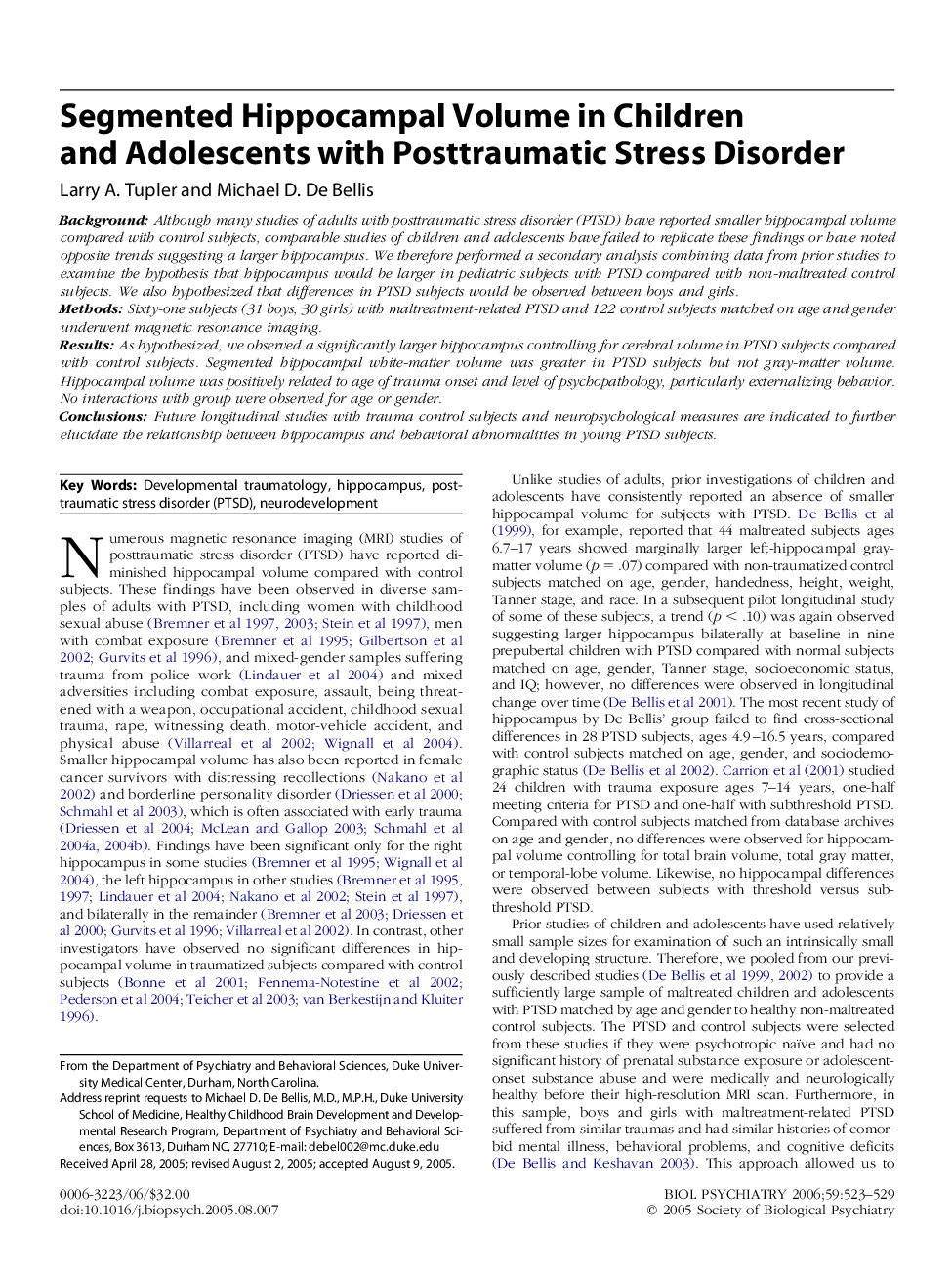| Article ID | Journal | Published Year | Pages | File Type |
|---|---|---|---|---|
| 4181342 | Biological Psychiatry | 2006 | 7 Pages |
BackgroundAlthough many studies of adults with posttraumatic stress disorder (PTSD) have reported smaller hippocampal volume compared with control subjects, comparable studies of children and adolescents have failed to replicate these findings or have noted opposite trends suggesting a larger hippocampus. We therefore performed a secondary analysis combining data from prior studies to examine the hypothesis that hippocampus would be larger in pediatric subjects with PTSD compared with non-maltreated control subjects. We also hypothesized that differences in PTSD subjects would be observed between boys and girls.MethodsSixty-one subjects (31 boys, 30 girls) with maltreatment-related PTSD and 122 control subjects matched on age and gender underwent magnetic resonance imaging.ResultsAs hypothesized, we observed a significantly larger hippocampus controlling for cerebral volume in PTSD subjects compared with control subjects. Segmented hippocampal white-matter volume was greater in PTSD subjects but not gray-matter volume. Hippocampal volume was positively related to age of trauma onset and level of psychopathology, particularly externalizing behavior. No interactions with group were observed for age or gender.ConclusionsFuture longitudinal studies with trauma control subjects and neuropsychological measures are indicated to further elucidate the relationship between hippocampus and behavioral abnormalities in young PTSD subjects.
